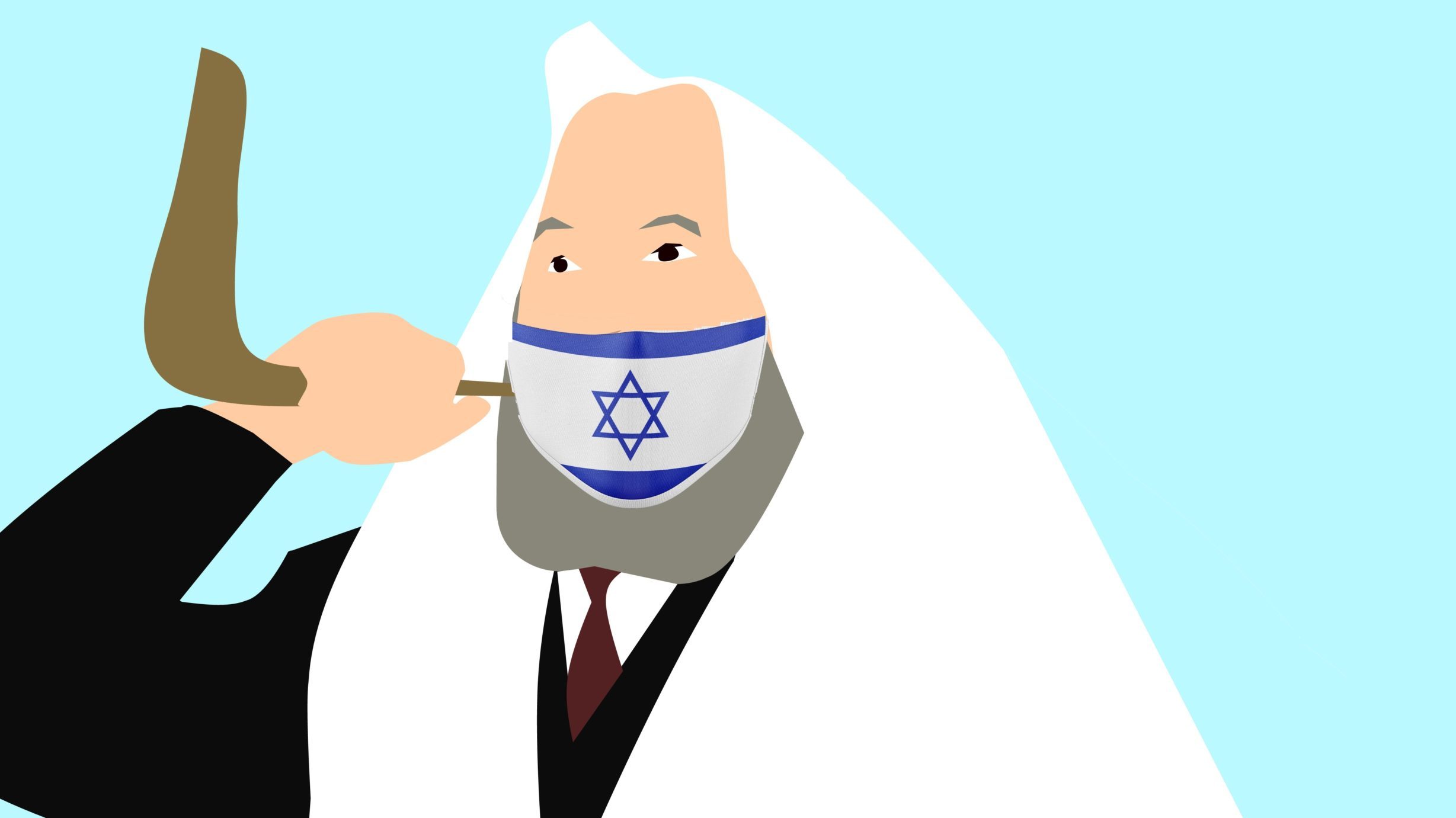Rising Coronavirus Cases in Israel Could Lead to High Holiday Lockdown
Public health experts say that while severe cases are at manageable levels, the opening of schools could challenge the health care system
Israeli Jews may find themselves observing Rosh Hashanah, Yom Kippur and Sukkot at home in like they did on Passover unless new daily coronavirus infections are brought down to a manageable level.
Prof. Ronni Gamzu, Israel’s COVID-19 coordinator, presented this worst-case scenario plan on Thursday to the coronavirus cabinet, which could approve the lockdown as soon as Monday when it reconvenes.
Prof. Nadav Davidovitch, director of Ben-Gurion University’s School of Public Health, told The Media Line that he is opposed to Israelis being confined to their homes for the holidays.
“I’m against the lockdown right now,” he said. “I think we still have reserves in the infrastructure in hospitals and community health care, and we need to wait before entering the High Holidays and see then how we can manage and especially differentiate different regions according to the light system.”
Davidovitch was referring to Gamzu’s “traffic-light plan” to label municipalities in Israel according to their infection levels. Each municipality would be assigned a color that comes with varying levels of restrictions for education, gatherings and events, workplaces and public services. The stringency of the measures would range from the least for green, to yellow then orange and finally red, with the harshest restrictions.
The “traffic-light plan” could become operational immediately with the approval Monday of the coronavirus cabinet and run until Sept. 10. If by then each infected person is still transmitting the virus to more than one person, the stricter measures would go into effect from Rosh Hashanah, which begins at sunset Friday, Sept. 18 until the end of Sukkot more than three weeks later.
According to Israel’s Health Ministry, as of Sunday, there were 102,150 total coronavirus cases with 408 patients in severe condition and 112 on respirators. A total of 825 people have died from the virus with 79,303 recovering.
While there have been more than 1,500 new daily cases reported every weekday for the past month, there has not been a corresponding spike in the number of severely ill patients, according to Davidovitch.
“Public health is not only the number of cases but also living with corona,” Davidovitch said. “So, there was a bit of a rise in severe cases, but we can still manage it.”
The age distribution of COVID-19 patients is trending younger compared to the first wave, Prof. Gabi Barbash, director general emeritus of Israel’s Ministry of Health and director of the Weizmann Institute’s Bench-to-Bedside Program, told The Media Line.
My estimate is that when they see the numbers that are not going down 10 days from now, they will have to decide about curfew during the holidays. I think that Israel cannot go into the winter with such a high level of activity of the virus without doing something
According to the Health Ministry’s weekly data, as of Sunday the age group with the highest percentage of new patients was 20 to 29, with 10.4% for women and 10.6% for men.
Barbash said that while the government is trying to avoid another nationwide curfew by giving more control to municipalities, it would take a “miracle” to lower the number of cases to a sustainable level because adding to the high daily case count will be the education system opening on Sept. 1 and ultra-Orthodox schools already opening on Sunday.
The latest coronavirus survey by the Guttman Center for Public Opinion and Policy Research at the Israel Democracy Institute found that 75% of Israelis say that they plan to send their children to school if the education system opens on Sept. 1.
“My estimate is that when they see the numbers that are not going down 10 days from now, they will have to decide about curfew during the holidays,” Barbash said. “I think that Israel cannot go into the winter with such a high level of activity of the virus without doing something.”
Barbash said that if a curfew is implemented it would not be limited to the High Holidays but would continue until the number of new daily cases is brought down to no more than 200 or even less.
“I know it’s very difficult for anyone to decide to have a curfew in Israel these days,” Barbash said. “I believe that they may be waiting for an increase in the number of severe COVID-19 patients to justify more stringent measures. So maybe this will be the trigger to back up a government decision to have a curfew.”
Related Stories:
- Israel’s Coronavirus Czar Admits Pandemic Remains Untamed
- Arab Israelis Offended by Coronavirus Czar’s Comments
- Coronavirus Adds to Challenges Facing Foreign Workers in Israel


